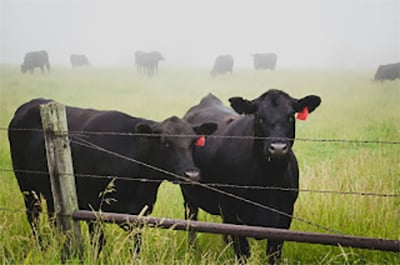It appears President Obama contributed to the global climate change crisis this week by dishing up a new clean air plan that inadvertently boosted carbon emissions by setting the hair of Kentucky politicians afire, then producing from them sufficient hot-air responses to send the danger needle off the chart.
Rep. Ed Whitfield, R-Hopkinsville: “…shutter more power plants across the nation, double down against affordable energy and the reliability of our grid, and deal a major blow to jobs and the economy.’’
Rep. Brett Guthrie, R-Bowling Green: “…doubles down on the administration’s War on Coal and provides a huge boon to radical environmentalists…’’
And, in a nod to bipartisanship, Gov. Steve Beshear, a Democrat desperately working overtime to shed his reputation as an environmentalist: “…disastrous — disastrous for our declining coal economy and equally disastrous for our very important manufacturing economy.”
All the Armageddon talk was sparked by the Obama administration’s introduction of the Clean Power Plan, a long-anticipated policy for reducing carbon dioxide emissions from the nation’s power plants to a level 32 percent below 2005 readings by 2030. A formula provides each state with a target – in Kentucky it’s a 31 percent drop over 2012 levels. And it’s left up to the states to decide individually how to meet the requirements. If a state refuses to comply, the EPA will impose a cap-and-trade plan.
Obama’s rationale for offering up the new policy is clear — human activity is “changing the climate in dangerous ways,’’ thus affecting the nation’s health and stability. Carbon dioxide has reached a level higher than it’s been in 800,000 years, according to scientists, resulting in a warming of the atmosphere. Last year, 2014, was the planet’s warmest year on record. Fourteen of the 15 warmest years on record have fallen within the first 15 years of this century.
The president described the plan as “the single most important step America has ever taken in the fight against global climate change.’’
“Right now, our power plants are the source of about a third of America’s carbon pollution,’’ Obama said. “That’s more pollution than our cars, our airplanes and our homes generate combined. That pollution contributes to climate change, which degrades the air our kids breathe.’’
But in the minds of Kentucky lawmakers the dangers presented by global climate change pale in comparison to the absolute need to protect a reeling coal industry already on its last legs, staggering around the canvas like a punch-drunk pug.
Kentucky officials, ranging from Beshear to, of course, Senate Republican Leader Mitch McConnell consistently feel compelled to resuscitate a coal industry that, in many ways, has done more harm than good to the commonwealth over the long haul. The business is now approaching a point where it is beyond saving – the flat line hasn’t appeared but the vital signs are poor. Yet the commonwealth’s representatives will continue to kowtow in every possible way – even if it negatively affects people’s health.
It would be obtuse to maintain that Obama’s policies have had nothing to do with coal’s decline. The Environmental Protection Agency has assumed an all-sources approach to energy creation under this administration, meaning solar, wind and even natural gas and nuclear have horned in on coal’s game. It is increasingly obvious that the administration is becoming less enamored with coal, given its obvious environmental drawbacks.
But the president isn’t the lone wolf here. Utilities are closing many old, coal-fired power plants and opting for natural gas, which is plentiful and less expensive than the coal mined in Eastern Kentucky. And those who continue to use coal turn places like Wyoming where it is more easily recovered and, hence, cheaper.
In 2008 there were about 14,000 coal miners working in Eastern Kentucky. Today that total has dipped below 6,000. And it is becoming less and less economically viable. In 1990, the commonwealth produced more than 173 million short tons, an all-time high. By 2013, that had dipped to a little more than 80 million short tons.
The future is clear. But Kentucky politicians continue to cling to King Coal like Linus clings to his blanket.
Sen. Bob Casey, D-PA, comes from the nation’s fifth-largest coal producing state (Kentucky is third), offering up almost 51 million short tons in 2013, and he, better than just about any Kentucky representative, offers a clear-sighted view.
“The evidence of climate change is overwhelming and there’s no doubt that human activities are a major factor,’’ Casey said. “Addressing climate change is key for our nation’s economic security, national security, public health and the health of our environment.’’
Casey noted that the EPA based its plan “on the capabilities of states and provided states with flexibility in how they can comply with the plan, points I have raised directly with the administration.’’
“There’s no question about the need for action,’’ Casey said. “There’s also no question that the administration and Congress need to focus on policies that help those workers in the energy sector that are adversely impacted by the rule.’’
You’ll have to wait a much longer time than Evangeline ever had to wait for Gabriel to hear almost any Kentucky lawmaker acknowledge such realities. McConnell, as always, as sure as the sun rises in the east, provides the apologia.
The “regressive regulations’’ in the administration’s package, McConnell said, are “projected to cost billions’’ and “harm struggling workers and families.’’
“They threaten to ship good middle class jobs overseas,’’ he said. “They’ll likely make it harder to maintain reliable sources of energy to meet demand. They’ll also likely to result in higher energy bills for those who can least afford them, potentially raising electricity rates by double digits for the people I represent.’’
Added McConnell, ““Not only will these massive regulations fail to meaningfully affect the global climate, but they could actually end up harming the environment by outsourcing energy production to countries with poor environmental records like India and China.’’
Now, will it cost money to address global climate change? You bet. But there’s no getting around the dangers and if McConnell has a better way to reduce carbon emissions that are causing the onrushing crisis, he is, for some untold reason, keeping it to himself.
And the economic issues may not prove that extensive anyway. Natural gas prices have declined over the past few years, leading utilities to consider that source anew. In its 2014 Annual Energy Outlook – before the release of the administration’s Clean Power Plan, it should be noted — the U.S. Energy Information Administration reported that coal now produces about 41 percent of the nation’s power, compared to 27 percent from natural gas. But by 2035 natural gas, which produces less carbon dioxide per megawatt-hour than coal, is expected to serve as the primary fuel for electricity generation.
And while it’s true that the administration’s policy represents a small step in addressing global climate change, you can bet other countries, like India and China, would use any inactivity on behalf of the U.S. to maintain their status quo, which ultimately is unsustainable.
“…this is one of those rare issues — because of its magnitude, because of its scope — that if we don’t get it right we may not be able to reverse, and we may not be able to adapt sufficiently,’’ Obama said. “There is such a thing as being too late when it comes to climate change.’’
Washington correspondent Bill Straub served 11 years as the Frankfort Bureau chief for The Kentucky Post. He also is the former White House/political correspondent for Scripps Howard News Service. He currently resides in Silver Spring, Maryland, and writes frequently about the federal government and politics. Email him at williamgstraub@gmail.com.


















